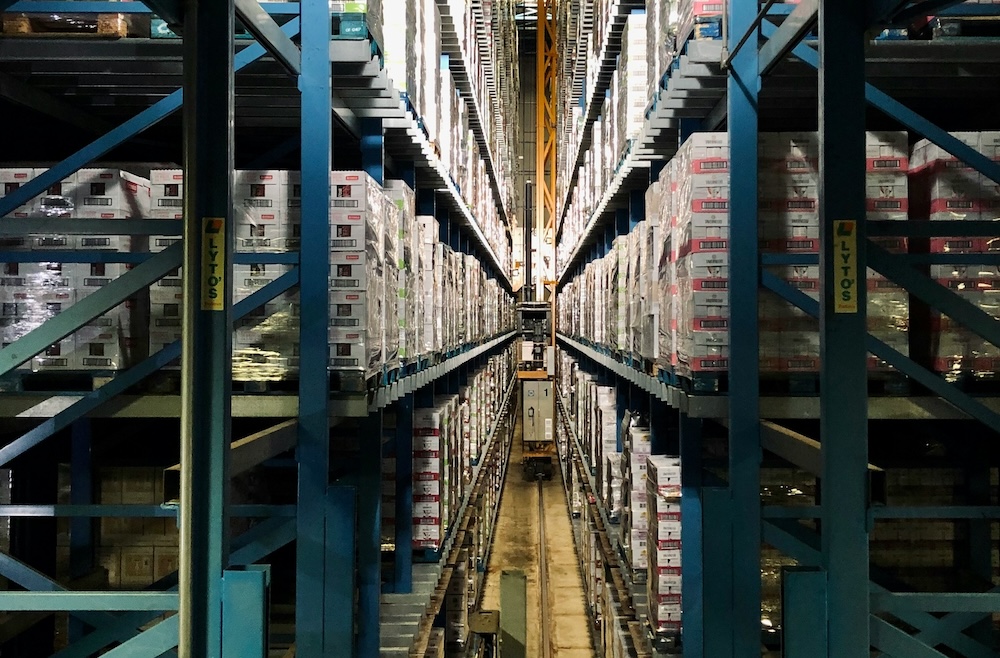Frozen Foods Can Help Solve Supply Chain Challenges

In today’s fast-paced world, supply chain challenges are more common than ever. Disruptions, rising costs, and quality concerns can impact everything from retail shelves to restaurant menus. However, there’s a silver lining in the form of frozen foods. As an industry pioneer, MIC Food has demonstrated how frozen produce can offer effective solutions to many supply chain issues. In this blog post, we’ll explore how frozen foods can help address supply chain challenges.
Understanding Supply Chain Challenges
Supply chains are intricate networks that manage the flow of goods from producers to consumers. While they are designed to be efficient, they often face several challenges:
Disruptions and Delays: Natural disasters, geopolitical events, and pandemics can disrupt supply chains, leading to delays and shortages.
Inventory Management Difficulties: Balancing supply and demand can be tricky, especially with perishable goods. Overestimating demand can lead to waste, while underestimating it can result in shortages.
Quality and Safety Concerns: Maintaining product quality and safety throughout the supply chain is critical, but can be challenging with fresh produce that has a limited shelf life.
Rising Costs: Transportation, storage, and labor costs can escalate, affecting the overall cost of goods and services.
Advantages of Frozen Foods in Supply Chain Management
Frozen (IQF) foods offer several advantages that can help mitigate these supply chain challenges. Here’s how:
Extended Shelf Life
One of the most significant benefits of frozen foods is their extended shelf life. Freezing preserves food by halting the growth of bacteria, molds, and yeast. This preservation helps in several ways:
- Reduced Spoilage: Frozen products can be stored for months, or even years, without deteriorating. This reduces the risk of waste and spoilage, a major concern with fresh produce.
- Inventory Flexibility: With a longer shelf life, businesses can stock up on frozen foods, ensuring they have the necessary inventory even during disruptions. This flexibility allows for better planning and management.
MIC Food has leveraged this advantage by offering a wide range of high-quality frozen tropical fruits and vegetables that come pre-cut and pre-cooked. Our products, including frozen plantains, are designed to stay fresh and flavorful, ensuring that businesses can rely on consistent supply without worrying about rapid spoilage.
Reduced Transportation and Storage Costs
Frozen foods can be more cost-effective than fresh produce in several ways:
- Lower Storage Costs: Freezing can reduce the need for expensive refrigeration and handling associated with fresh produce. Frozen goods can be stored in large quantities without the need for frequent restocking.
- Efficient Transportation: Frozen foods often require less specialized transportation compared to fresh goods. This efficiency can result in lower transportation costs and fewer logistical hurdles.
MIC Food’s strategic approach to supply chain management, including our use of strategically located warehouses, helps streamline the distribution of frozen products. By optimizing our logistics, they ensure that products are delivered efficiently and cost-effectively.
Consistent Quality and Safety
Maintaining consistent quality and safety is crucial for any supply chain, and frozen foods excel in this regard:
- Quality Control: Freezing locks in the flavor, texture, and nutritional value of food. MIC Food’s rigorous quality assurance practices ensure that our frozen products meet high standards of excellence.
- Food Safety: Frozen foods often undergo strict safety protocols. MIC Food, for instance, adheres to HACCP and GFSI-recognized programs, ensuring that our products are safe and meet regulatory requirements.
By choosing frozen foods, businesses can benefit from consistent quality and reduced risk of foodborne illnesses, addressing a major concern in supply chain management.
How Frozen Foods Address Specific Supply Chain Challenges
Disruptions and Delays
Frozen foods can help maintain supply continuity during disruptions. For instance:
- Emergency Preparedness: Frozen goods can be stocked in advance, providing a buffer during supply chain disruptions. This is particularly useful in industries like food service, where consistent product availability is crucial.
- Resilient Supply Chain: With a reliable supply of frozen products, businesses can adapt more easily to unexpected changes or disruptions.
MIC Food’s long-standing presence in the frozen plantain industry illustrates how a stable supply of frozen products can help businesses navigate challenges and maintain consistent operations.
Inventory Management
Effective inventory management is vital for optimizing supply chains:
- Stock Management: Frozen foods allow businesses to manage inventory more efficiently. With longer shelf life, companies can keep larger quantities in stock without worrying about immediate spoilage.
- Demand Forecasting: Businesses can better align their inventory with demand forecasts, reducing the risk of overstocking or shortages.
MIC Food’s expertise in providing ready-to-cook frozen tropical foods supports efficient inventory management, helping businesses align their stock with market needs.
Cost Management
Cost control is a key aspect of supply chain management:
- Cost Savings: The extended shelf life and reduced storage requirements of frozen foods can lead to significant cost savings. By cutting down on waste and optimizing storage, businesses can lower their overall expenses.
- Price Stability: Frozen foods can offer price stability compared to fresh produce, which can be subject to price fluctuations based on seasonality and supply conditions.
MIC Food’s focus on providing cost-effective frozen solutions helps businesses manage their budgets while ensuring they receive high-quality products.
Conclusion
Frozen foods offer a valuable solution to many supply chain challenges, from extended shelf life and reduced costs to consistent quality and safety. By incorporating frozen products into your supply chain, you can address disruptions, manage inventory more efficiently, and optimize cost control. MIC Food’s expertise and commitment to excellence illustrate how frozen foods can enhance supply chain resilience and performance.
For more information on how frozen foods can benefit your supply chain or to explore MIC Food’s extensive product range, contact us today. Embrace the advantages of frozen foods and transform your supply chain challenges into opportunities for success.



